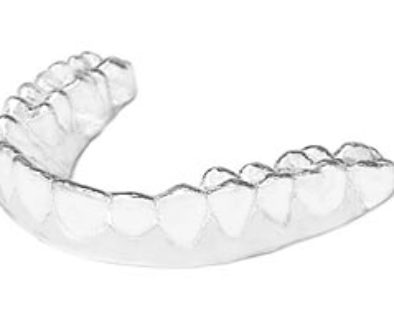Dental Isolation Systems
One of the most critical parts of placing fillings or doing a root canal correctly is keeping the tooth entirely isolated from any saliva or blood in the mouth. How does your dentist do this effectively? What can you do to help?

Rubber Dam
The rubber dam was invented in the 1800’s and is still in use today. Most people think of it as a medieval torture device and many dentists aren’t a big fan of it either. I don’t personally love it either but there are definitely some situations where it is a good option. It works by putting a small metal clamp around one of your teeth. A thin square sheet of rubber (usually latex based but there are other options) is then stretched around the clamp and over the teeth and a metal frame used to stretch the sheet over your mouth.
Rubber dams are the only acceptable way to keep a tooth isolated for a root canal. If your dentist isn’t using one while doing a root canal, either insist they use one or find another dentist. The rubber dam protects you from accidentally swallowing the small files used during treatment as well the harsh chemicals used to disinfect your tooth.
Positives:
- When put in place well, it is the single most effective method for keeping your teeth isolated.
Negatives:
- If you’re claustrophobic, it can be quite disconcerting.
- The clamp can irritate the gum tissue if placed too far down.
- Some procedures can’t be done with a rubber dam in place.

Isolite
About 150 years after the invention of the rubber dam, a company finally invented a viable alternative to rubber dams for most dental procedures. An Isolite mouthpiece is a disposable rubber device that attaches to your dentist’s suction system. It consists of a bite block (something to keep your mouth open) as well a rubber barrier that pulls your tongue and cheeks out of the way. It simultaneously isolates all the teeth on the top and bottom of one side of your mouth as well as suctioning away any water or saliva.
Positives:
- Good isolation for most procedures.
- Isolates more teeth at once than a rubber dam
- Multiple sizes for a comfortable fit.
- Very effective for use while doing fillings.
- Not as scary looking or as claustrophobic as a rubber dam.
Negatives:
- Not quite as effective as a rubber dam for isolation.
- Not currently recommended for use during root canals.
- Can be quite loud with the suction on.
- Can cause some gagging if you have a bad gag reflex.
Cotton Rolls
This is the most common method dentists use to keep your teeth dry. It’s the easiest method to use, especially for small or limited treatment.
Positives:
- Easy to put in place.
- Causes the least amount of gagging
- Can be used anywhere
Negatives:
- Isolation is only OK.
- If the cotton rolls get saturated with water and saliva, they won’t work anymore.
What You Can Do To Help
- Relax your tongue as best you can. Anytime your tongue touches the tooth that is being worked on, it will contaminate it.
- Stay still. The more still you are, the faster your dentist can work.
- Keep your mouth open. Common sense right? You’d be surprised. Many people either won’t open all the way or try to close while we’re working.
- Try not to talk. You’d think this would be another common sense tip. I’ve literally had people talk all the way through procedures which makes it very challenging to do a good job.
- Floss for at least the week before your appointment. This will reduce bleeding during the procedure.



